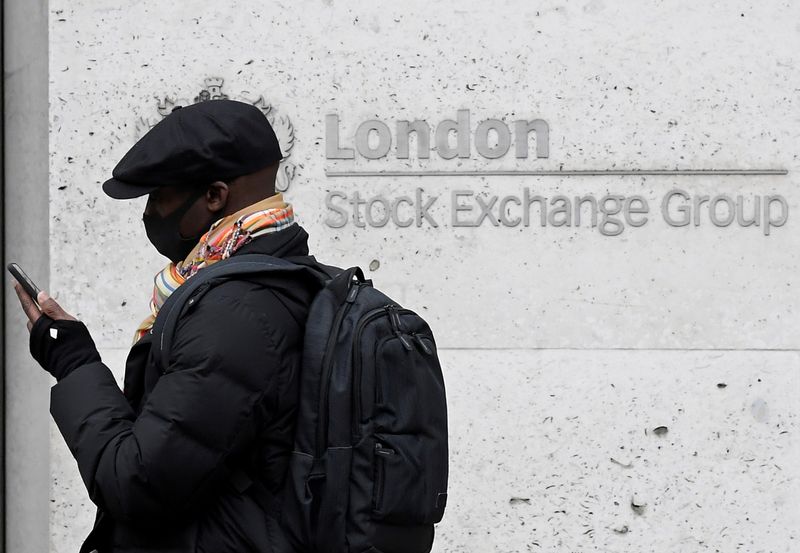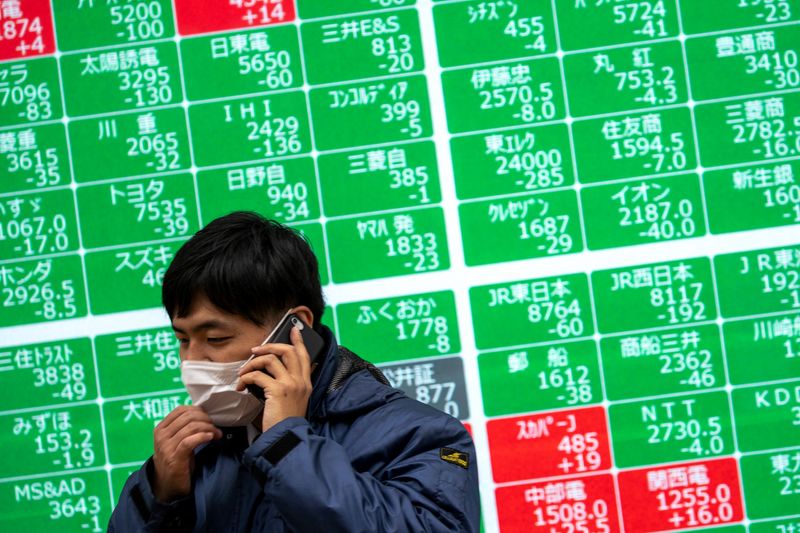By Tom Arnold and Hideyuki Sano
LONDON/TOKYO (Reuters) - World shares surged on Wednesday as reports of a European Union rescue fund helped offset concerns about unrest in Hong Kong over Beijing's proposed national security laws.
The European Commission proposed a package worth in total 1.85 trillion euros for the EU's next long-term budget and a recovery fund for economies hammered by the coronavirus pandemic.
News of the plan helped underpin a broad market rally in Europe.
The euro (EUR=) jumped to trade at 1.1022 against the dollar, up from 1.0932, while the STOXX 600 (STOXX) extended gains, rising 0.7% to reach its highest level since March 10. Yields of Italian, Spanish and Portuguese sovereign debt fell to multi-week lows.
MSCI (NYSE:MSCI)'s index of the world's 49 stock markets (MIWD00000PUS) gained 0.3%, close to the two-and-a-half-month highs reached on Tuesday on hopes of economic recovery in the developed world as countries ease social restrictions after the COVID-19 crisis.
But concerns about U.S.-China tensions over Hong Kong helped keep a dampener on stronger gains.
Riot police fired pepper pellets on protesters in Hong Kong's main business district, rekindling concern about the unrest seen last year that hit the territory's economy.
MSCI's ex-Japan Asia-Pacific index (MIAPJ0000PUS) fell 0.4% as Hong Kong and mainland China shares extended declines.
Hong Kong's Hang Seng (HSI) fell 1.0% and mainland shares (CSI300) were down 0.8%, amid fears the protests would worsen antagonism between the United States and China.
Oil prices fell amid the U.S.-China friction and concern over how quickly fuel demand will recover as lockdowns ease. Brent crude (LCOc1) futures dropped 1.6% to $35.60. U.S. West Texas Intermediate crude futures (CLc1) were down 1.2%, at $33.95 a barrel. [O/R]
E-Mini futures for the S&P 500 (ESc1) rose 1.2% to their highest point since March 6. The index had cleared 3,000 points in Wall Street overnight before earlier pulling back, as some traders returned to the New York Stock Exchange floor for the first time in two months.
But China remained in focus after U.S. President Donald Trump said on Tuesday that he was preparing to take action against Beijing this week over its effort to impose national security laws on Hong Kong.
Worsening relations between the world's two biggest economies could further hobble global business activity, which is already under pressure from the coronavirus pandemic.
The dollar, measured against a basket of currencies, edged down 0.2% to 98.788 (=USD).
The Chinese yuan weakened to the lowest levels since early September in both onshore and offshore trade. The onshore renminbi slipped 0.3 to as low as 7.1595 per dollar
Anticipation of the EU recovery plan lifted Southern European bonds.
Italy's 10-year bond yield fell to a seven-week low at 1.48% (IT10YT=RR), while Spain and Portugal's 10-year govt bond yields (ES10YT=RR), (PT10YT=RR) fell to eight-week lows.
U.S. Treasury yields rose, with 10-year yields (US10YT=RR) at 0.687%, up about 4 basis points from Tuesday.

Gold prices
